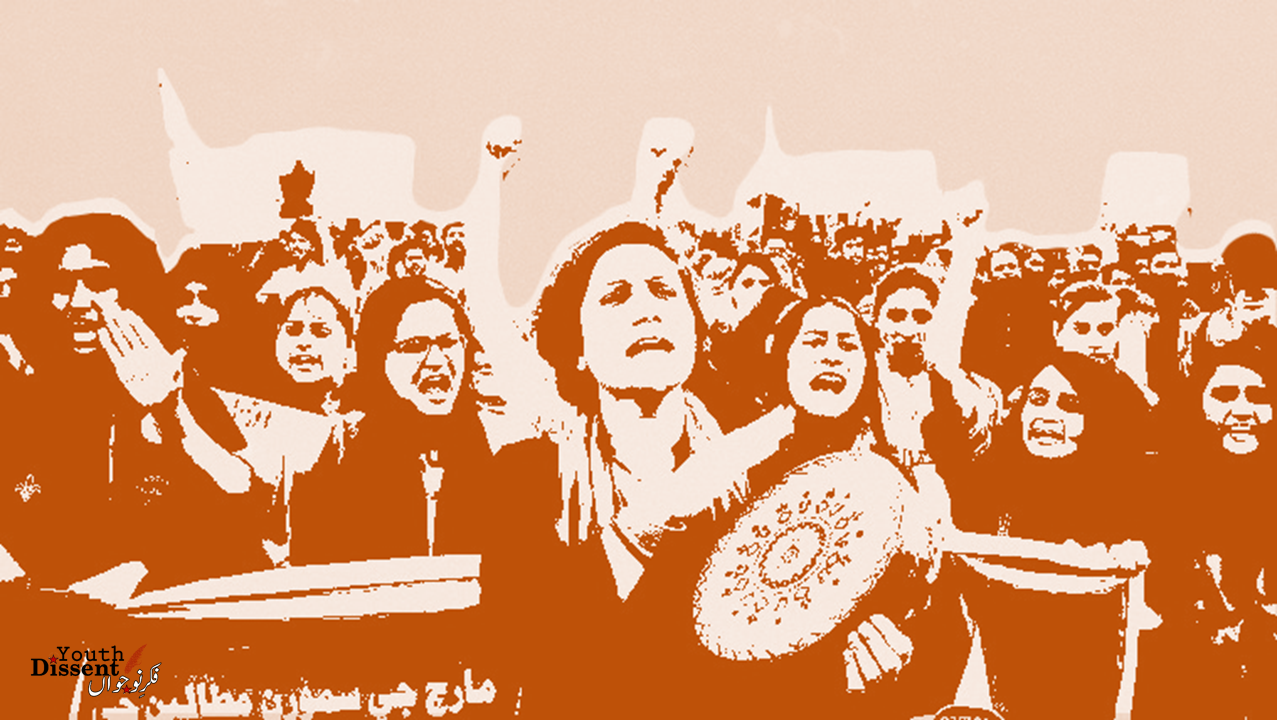Ayyaz Mallick
Students have historically played a fundamental role in the politics of post- and semi-colonial countries. From Latin America to Africa, movements for national liberation, self-determination, and democracy, has had students and student movements at their forefront. Pakistan is no different in this regard. In 1968, when Pakistani students initiated and led a movement which brought down the hated Ayub regime and introduced the imaginary for a different kind of politics in the country, one pointing towards a society freed from the shackles of capitalism and imperialism, and its various neo-fundamentalist and religious millenarian reactions.
In revolutionary history, 1968 holds almost the same significance as dates like 1789 (French Revolution), 1791 (Haitian Revolution), 1871 (Paris Commune), 1917 (Soviet Revolution) and 1949 (Chinese Revolution). Emerging at the tail-end of post- war capitalism’s “Long Boom” and the high era of anti-colonial national liberation movements, 1968 was a watershed moment in modern world history. Neither advanced capitalist democracies nor the Second or Third Worlds were left unaffected. The Tet offensive in Vietnam marked the most humiliating defeat of US imperialism, while students and workers in Paris, Prague, and Mexico joined together to (almost) bring down their respective suffocating regimes. It marked the emergence of the New Left, new agencies (and agents) of transformative politics, such as movements around queer identity and ecology, and the first intimations of the post-modern phase of culture and capital which would later engulf the world.
However, in hindsight, it was the student-led movement in as intellectuals of the capitalist class. As such, organic intellectuals are crucial for the organisation of a class and articulation of its interests over the linked, but distinct, spheres of the economy, civil society and political society in capitalist society (i.e. what Gramsci terms the “integral state”).
Traditional intellectuals, on the other hand, are those which are conventionally considered “intellectuals”. They are the ulema, university lecturers, media personalities, columnists, and scientists etc., who ensure the ideological and material reproduction of capitalist society. In fact, today’s traditional intellectuals were often organic intellectuals of yesterday’s emergent class/social group, who have now become institutionalised as traditional intellectuals along with institutionalisation of the emergent groups’ hegemony. As such, by shaping the ideological (and material) contours of society as a whole, traditional intellectuals are crucial for maintaining the organicity of a prevailing social-economic order.
It is this task of maintaining organicity and ensuring overall reproduction, which gives traditional intellectuals their outsized importance in any transformative politics. This is especially true in (post-) colonial countries, where the imperative of native control and reproduction of the colonial state and economy, made the production of (colonised) traditional intellectuals one of the key tasks of Euro-American colonisers. Pedgagogical institutions, as the sites par excellence for producing traditional intellectuals, become crucial grounds for reproducing the organicity of the social order. And it is thus that in capitalist societies, and especially in (post-) colonial societies which are characterised by under-developed articulations between formal institutions of civil and political society, that student politics assumes an essential function in the wider body politic.
Moreover, it for this reason that cracks within the apparatus of traditional intellectuals (madaris, universities, colleges etc.) have a strategic importance in disrupting the organicity and reproduction of the entire capitalist order. As such, all revolutionary movements must bring on-board a section of the traditional intellectuals, in order to take advantage of their role in reproducing society’s vital functions for the hegemonic order. The struggles of the Bolsheviks and Lenin’s wooing of the (virulently anti-communist Nobel Prize winner Ivan Pavlov are instructive in this regard.
In Pakistan’s case, the fact that a student-led movement went beyond their own to join hands with workers and labour from different sectors, precipitating the greatest crisis ever faced by our ruling bloc, is not forgotten by our ruling classes. Today, we have an upsurge of students from FATA and Gilgit to Sindh which threatens to disrupt the prevailing organicity of our decadent ruling bloc. Their utmost efforts in suppressing old alliances is reflected in the undeclared state of martial law and attendant immobilization of students on our university and college campuses. In fact, lest we forget, the 11-point charter of the East Pakistan Students’ committee of Action in 1968-69 – demanding democratization of campuses, a non-aligned foreign policy, nationalization/workers’ control of key sectors, and regional autonomy for Pakistan’s constituent units- remains the blueprint for any viable progressive political program in the country even today.
History cannot be made, as Marx once reminded us, without conjuring up the spirits, the slogans and the garb of previous battles for making anew the present. The ruling classes suppress memory to make us prisoners of the present, and thus to foreclose possibilities for the future. A people which cannot remember the past are rendered incapable of imagining the future.
On the anniversary of 1968, it is our task to keep that memory alive not merely as sentimental remembrance, but as a resource to think about our present, to act for the future, to break the linearity of time dictated and imposed upon us from above. Remembrance and its activation in the present thus becomes a task of revolutionary significance. Our ruling classes have certainly not forgotten this and neither should we.
This article was published previously in Students’ Voice magazine.



